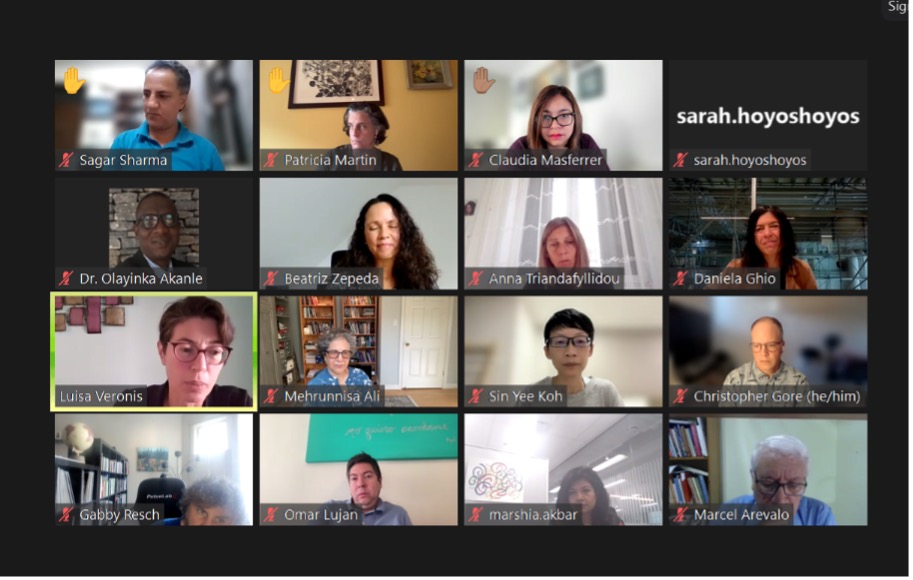Meeting on data analysis and visualization: Part 1
- Date
- October 03, 2023
- Time
- 9:00 AM EDT - 10:30 AM EDT
- Location
- Via online (by invitation only)

The scope of the meeting was to describe the plan on qualitative methods with a focus on:
1. The methodological design, and 2. The main activities to be carried out in each regional system.
- The proposed plan is to conduct case studies to complement the quantitative data analysis with qualitative data/evidence. The aim is to investigate the experiences of migrants from specific origin communities, migrants in transit places and spaces, as well as migrant hubs at destination. A mixed qualitative methods approach will be used, including review of available documentation (such as background country reports), key informant interviews (stakeholders and organizations working with migrants), migrant interviews, and focus groups with local stakeholders who are indirectly involved with migrants. Recruitment of migrants (and other participants) can be done through community partners already affiliated with MEMO.
- The proposed fieldwork sites were described with objectives, locations of interest; regional research teams responsible for identifying case studies. Migrant interviews are the main data collection tool, with specific questions on migrant motivations, rationale in decision making and route/pathway selection, along with survey data on demographic characteristics of migrants and ethnographic observations. The key informant interviews and focus groups with local stakeholders (local organizations, community leaders, volunteers, and other individuals involved in migration-related sectors, for instance business owners, and those in close contact with migrants, such as public service workers) will aim to capture broader information regarding migration flows and changes in the demographic profiles of migrants across the communities of origin, transit places, and hubs at destination. These data will provide complementary insights to the migrant interviews from the perspective of local communities/stakeholders.
Comments highlight the need for flexibility. Each regional system may face a number of unique challenges, however flexibility and specificity per region cannot override the feasibility and practical comparativeness of the MEMO qualitative study. Data collection tools can be adapted to different communities based on local logistical capacity and needs in ways that ensure relevancy for each system. While aiming to capture a wide range of migrant experiences (variability), we will use a saturation criterion to determine when data collection is complete. Guidance will be provided to teams.
Next steps include the engagement of MEMO partners and organizations in the current activities relating to methodological design and development of data collection instruments.